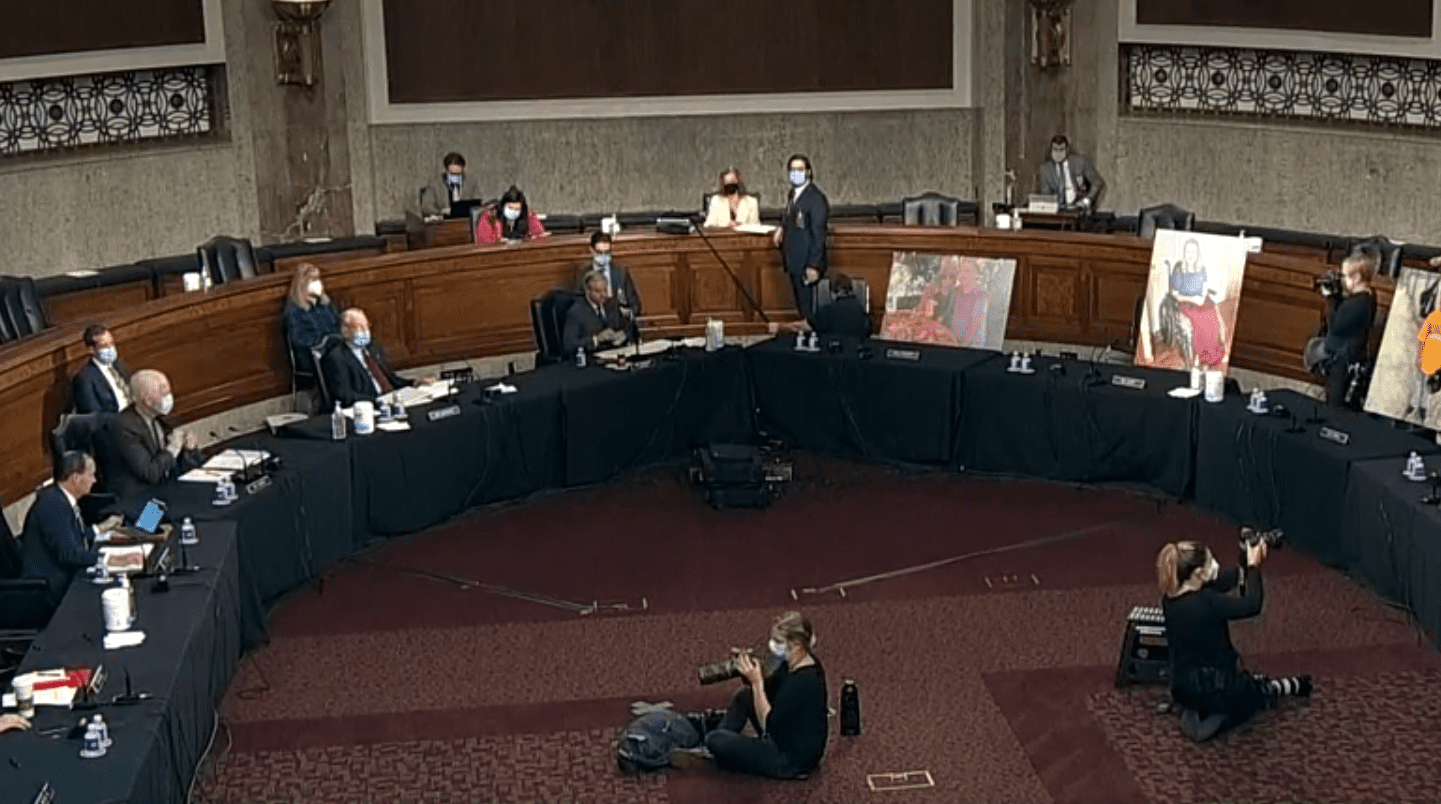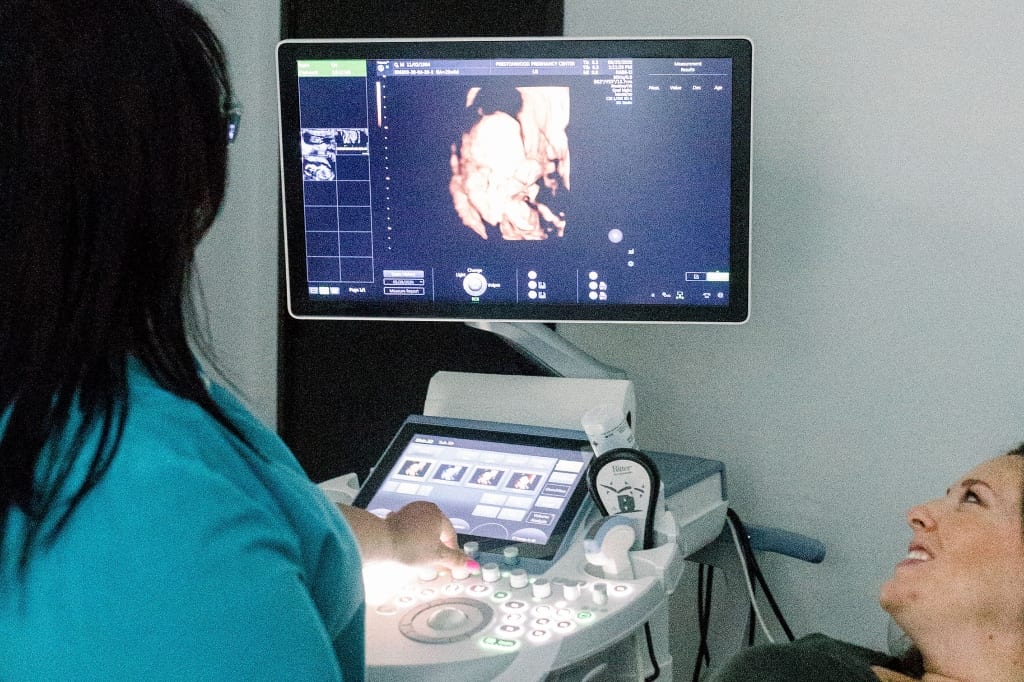
The Senate Judiciary Committee forwarded the nomination of Amy Coney Barrett to the full chamber Oct. 22 in a session that demonstrated the deep and partisan divide over her apparent addition to the Supreme Court.
Conservatives, including pro-life advocates, applauded Barrett’s advance to a Senate confirmation vote, while liberals, especially abortion-rights supporters, continued to express their opposition.
The Judiciary Committee’s 12-member Republican majority voted unanimously to advance President Donald Trump’s nomination of the federal appeals court judge, while all 10 Democrats on the panel boycotted the meeting in protest of what they called “a sham process.”
Senate Republicans are expected to hold a confirmation vote Oct. 26 and appear to have at least 51 votes in the 100-member chamber to place Barrett on the high court.
Barrett “is a brilliant constitutional scholar and imminently qualified jurist,” Southern Baptist public policy specialist Travis Wussow told Baptist Press.
“Yet what might be most impressive is how she approached the Senate Judiciary Committee with a humility and civility unusual in such high-stakes settings in Washington,” said Wussow, general counsel and vice president for public policy of the Ethics & Religious Liberty Commission. “I’m glad she is moving forward from the committee to the full Senate for a confirmation vote.”
The fate of the 2010 health-care law gained the spotlight during much of the committee’s hearing on Barrett, but abortion remained a significant issue before and after the panel’s vote.
Sen. Lindsey Graham, R-S.C., chairman of the Judiciary Committee, said minutes before the vote, “[I]t’s OK to be a complete person and be on the Supreme Court. It’s OK to be pro-life. She embraces the pro-life cause in her personal life, but she understands that judging is not a cause. It is a process.”
The committee vote on Barrett is a “historic milestone for the pro-life movement, especially pro-life women,” said Marjorie Dannenfelser, president of the pro-life Susan B. Anthony List.
On the eve of the committee vote, Democrat leaders in the Senate issued warnings about Barrett’s future rulings on abortion.
Senate Minority Leader Charles Schumer tweeted Oct. 21 that a vote for the nominee “is a vote to curtail women’s reproductive freedoms.”
The lead Democrat on the Judiciary Committee – Sen. Dianne Feinstein of California – said Barrett “would give conservatives the votes necessary on the Supreme Court to overturn Roe v. Wade and end women’s hard-fought right to make their own reproductive health decisions.”
The high court’s Roe v. Wade decision in 1973 struck down state laws restricting abortion and legalized the lethal procedure throughout the country.
If confirmed, Barrett, 48, a judge on the Seventh Circuit Court of Appeals in Chicago, would be considered the sixth conservative among the justices, though such labeling has not always resulted in rulings that might be expected on such issues as abortion and the conflict between religious freedom and LGBTQ issues.
Her confirmation also would mean Trump will have placed three justices on the nine-member court during his term. The president previously nominated, and the Senate confirmed, federal appeals court judges Neil Gorsuch and Brett Kavanaugh.
Democrats strongly objected to Trump’s decision after the Sept. 18 death of Associate Justice Ruth Bader Ginsburg to submit a high-court nominee before the Nov. 3 election. They also criticized the Senate GOP’s decision to hold a confirmation vote, contending such an action should wait until voters have chosen who will be president beginning in January.
In a statement Wednesday, Schumer and the Democrats on the Judiciary Committee announced the boycott of the vote. They “will not grant this process any further legitimacy by participating in a committee markup of this nomination just twelve days before the culmination of an election that is already underway,” they said in a written statement.
Graham moved forward with the vote despite a committee rule that requires two members of the minority party and a majority of the panel to be “actually present” to act on a nominee, The Wall Street Journal reported. The chairman can override the requirement, according to The Journal, and reportedly has done so on committee business in the past.
During the Oct. 12-15 hearing, Barrett declined to commit to how she would rule on such issues as abortion and the 2010 health-care law known as the Affordable Care Act.
She told the committee she has done her best on the Seventh Circuit Court “to reach the result required by the law” regardless of her own preferences. Americans “of all backgrounds deserve an independent Supreme Court that interprets our Constitution and laws as they are written,” Barrett said. “And I believe I can serve my country by playing that role.”
Barrett clerked in 1998-99 for the late Associate Justice Antonin Scalia, who championed during his 30 years on the court the philosophy of interpreting the Constitution based on its original meaning and laws according to their text. Like Scalia, Barrett espouses what is known as originalism.
When she was nominated by Trump to the Seventh Circuit in 2017, Barrett faced questioning by Democrats on the Judiciary Committee regarding her Catholic faith. This time, Republican committee members preemptively criticized any attempts to apply a religious test to her.
The American Bar Association said in a letter to the Judiciary Committee’s leadership its Standing Committee on the Federal Judiciary rated Barrett as “Well Qualified” to serve on the Supreme Court, while a minority of the panel gave her a “Qualified” rating.
(EDITOR’S NOTE – Tom Strode is Washington bureau chief for Baptist Press.)


